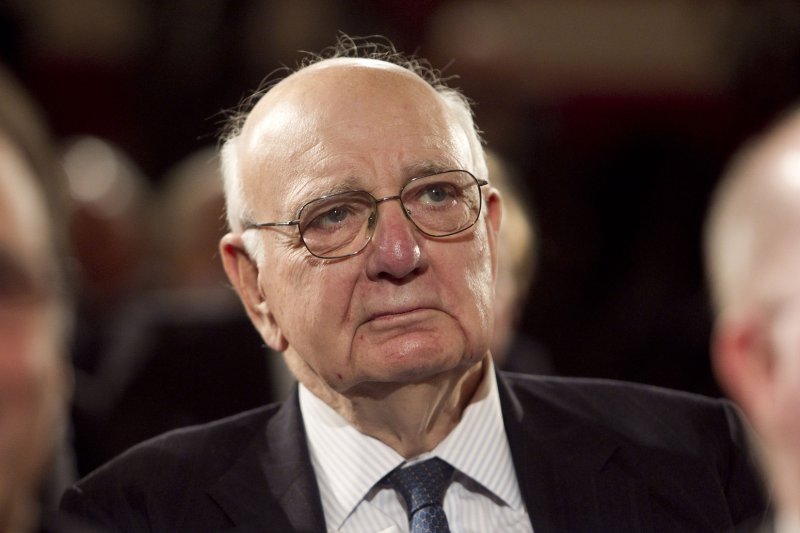Paul Volcker, then chairman of U.S. President Barack Obama's Economic Recovery Advisory Board, listens as Obama speaks at the U.S. Chamber of Commerce in Washington, Feb. 7, 2011. UPI/Andrew Harrer/Pool |
License Photo
GLENEAGLES, Scotland, Sept. 22 (UPI) -- Former U.S. Federal Reserve Chairman Paul Volcker said in Scotland the latest round of quantitative easing could spark uncontrollable inflation.
The Fed announced Sept. 13 it would increase it asset purchases to $85 billion per month through 2012. Stock markets responded favorably, but the finance minister of Brazil accused the United States of risking a currency war, given that quantitative easing has the effect of lowering the value of the dollar, which makes U.S. goods more affordable abroad.
The Daily Telegraph reported Saturday that Volcker spoke at a conference sponsored by the Chartered Accountants in Scotland.
In his speech, Volcker said "monetary policy is about as easy as it can get."
He said QE3, as the third round of asset purchases is called, "is understandable, but it will fail to fix the problem."
"There is so much liquidity in the market that adding more is not going to change the economy," he said.
The move could provoke inflation that policy makers will find hard to bring under control, he said.
"The risk is that central bankers are not able to tighten policy in time. Will they be able to pull back fast enough from loose monetary policy?" he said.
Volcker said China was no longer the economic power that would pull the global economy out of its slump.
"We can no longer look to China to rescue the world," he said. "The Chinese economy has slowed 50 percent since its peak and is no longer able to support international growth.
"Europe is in or near recession, including the U.K. So don't look to the U.K, to China, Brazil or India. The U.S. is the only country that can create the type of economic hope and market leadership the world needs. We have a weaker platform than we used to but it is still the most important platform in the world," he said.










